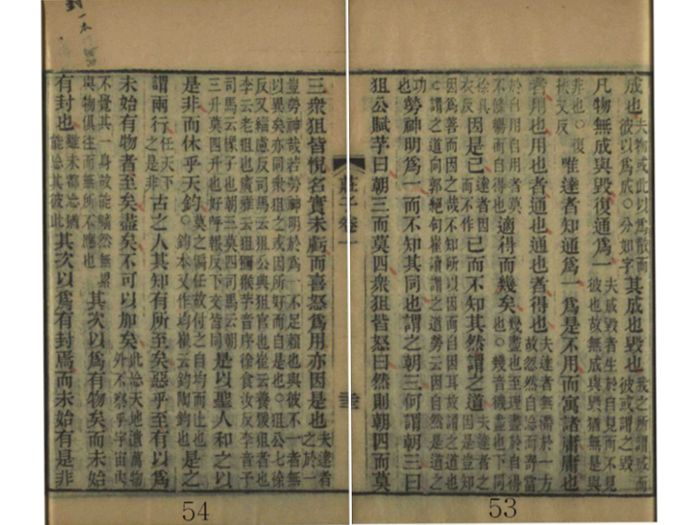(Translation) 朝三暮四
| Primary Source | ||
|---|---|---|
 |
Title | |
| English | ||
| Chinese | ||
| Korean(RR) | ||
| Text Details | ||
| Genre | ||
| Type | ||
| Author(s) | ||
| Year | ||
| Source | ||
| Key Concepts | ||
| Translation Info | ||
| Translator(s) | Participants of 2018 Hanmun Summer Workshop (Intermediate Training Group) | |
| Editor(s) | ||
| Year | 2018 | |
Original Script
Translation
Three in the morning, four at night
We struggle in our minds and spirits to unify things, and we don’t realize they are all the same. This is called three in the morning. What is called three in the morning? The monkey master gave out acorns, saying, “Three in the morning and four at night.” The monkeys were all furious. The monkey master said, “In that case, four in the morning and three at night.” The monkeys were all overjoyed. In name and in actuality there has been no harm done. Rather, joy and anger have their uses; they also are based on what people think right. This is how the sage harmonizes the people with right and wrong and rests in the order of things. We call this the way of both/and.틀:Ref
틀:Note An alternate translation to "both working" - both strategies are efficacious and work well, whether three or four acorns are given out in the morning.
Kathy Lin
- Discussion Questions: